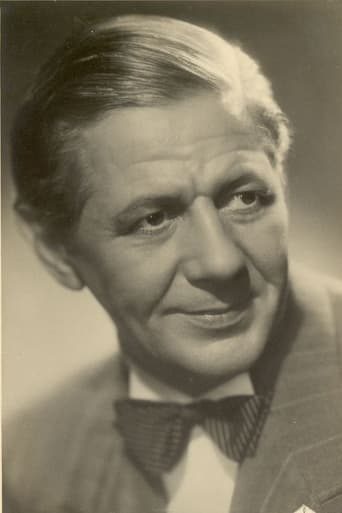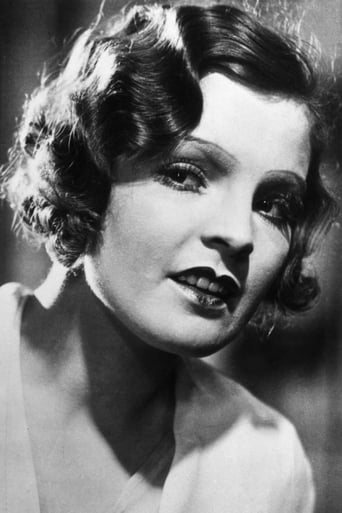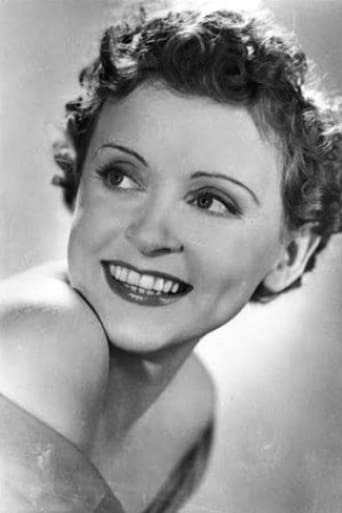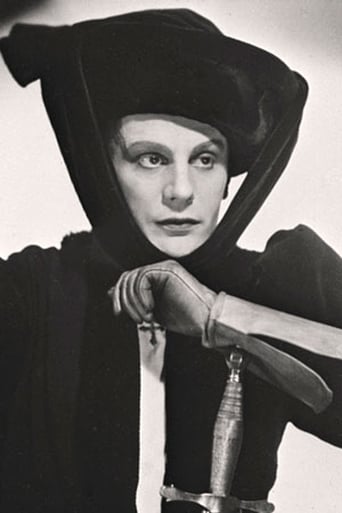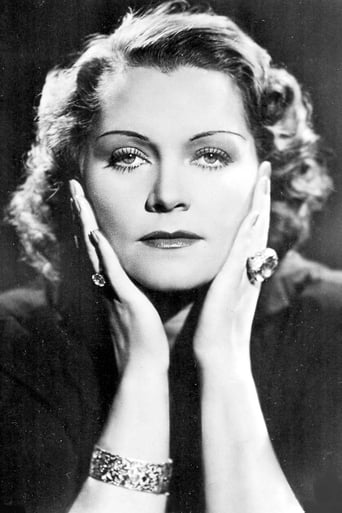Tayloriona
Although I seem to have had higher expectations than I thought, the movie is super entertaining.
Robert Joyner
The plot isn't so bad, but the pace of storytelling is too slow which makes people bored. Certain moments are so obvious and unnecessary for the main plot. I would've fast-forwarded those moments if it was an online streaming. The ending looks like implying a sequel, not sure if this movie will get one
Ella-May O'Brien
Each character in this movie — down to the smallest one — is an individual rather than a type, prone to spontaneous changes of mood and sometimes amusing outbursts of pettiness or ill humor.
Cristal
The movie really just wants to entertain people.
Michael Neumann
There aren't too many silver screen romances able to get way (even in subtitles) with lines like, "I'll love you for all eternity!" But this early German talkie is a notable exception, despite showing all the (typically primitive) technical shortcomings of a fledgling sound production. The tragic story offers no surprises, following a young soldier who falls in love with a shy, pretty singer, after ending an unhappy affair with a demanding and possessive baroness. But the familiar plot unfolds with disarming simplicity, which helps keep the melodrama fresh and involving even after all these years. Complications naturally follow: the young lieutenant finds himself accused by the cuckolded husband of his earlier paramour, with duty and honor demanding the two men settle their differences at gunpoint. The duel ultimately results in more than one fatality, but as the young singer explains in an earlier, happier interlude: eternity means beyond life, another sentiment that could only work behind the forgiving screen of subtitles.
dbdumonteil
This is the second version of a well known tale;the first was made in the silent era;the third,"Christine" ,a Pierre-Gaspard Huit effort ,was made to capitalize on Romy Schneider's huge success in the late fifties:she took on her mother Magda's most famous part.Max Ophuls 'work is much superior:more than the 1958 Christine ,it shows the difference between the two lovers's milieus:the dashing officer in his aristocratic world and the young girl's working class ;the scene at the opera theater with its cheap seats is revealing.For the boy,the girl is only a liebelei :hadn't Franz been killed,it's not sure that His love would have lasted.Christine's love is sincere ,she loves the officer with all her heart ,but her lover's world is not the same as hers ,his friend's relationship with Mizzi makes love a figure of fun (the scene when the husband unexpectedly enters the apartment) The final scenes climax the movie:the song which Christine performs on stage looks like a dirge and sounds like an omen ;the duel-which predates another Ophuls movie "Madame De..." and the heroine's suicide .Most of Ophuls works deal with woman's plight :his heroines are born to suffer : "la signora di tutti" "letters from an unknown woman" " Sans Lendemain" "Madame De " "Yoshiwara"...even when he chose real characters (Sophie Chotek in "De Mayerling A Sarajevo" or "Lola Montes") ,he made them the victims of a male society.In his canon,only the Courtezanes (Mizzi) or the whores ("Le Plaisir") who accept the rules of the game of the macho society can get away.
The Big Combo
A wonderful picture that shows how early in his career Ophuls mastered melodrama. As melodrama indicates, it's drama with music, and from the start Ophuls sets in motion an operistic, artificial mood. Every performance is self-conscious, aware of being representing; all sets are shown thoroughly, characters leave the scene and the camera remains a few seconds in the empty decor; even the way the snows falls from the sky appears to be fake. Still the film has an admirable freshness and engages the audience in an almost hypnotic trip, to which Ophuls' floating camera and his modern, dramatic use of the score contribute big time. Max Ophuls can be paralleled with Douglas Sirk as a director that purposely breaks up with any trace of reality in order to convey a truth that is purely cinematic.
a_morti
This is truly an excellent film, and it's production values totally belie the date of release.If you like it, take time out to read the play Liebelei by Arthur Schnitzler. The guy above me misspelled his name, so you won't find it by searching that way! I think it's been translated into English as 'Flirtations'. You will discover that this is one of the earliest examples of a good story being taken (granted these days it's done by Hollywood) and mutated to fit the dramatic formula. For instance, our two protagonists are not cavalry officers, but members of the 'fin de siecle' bourgeois class who have bought they're way in as reserves at the officer level, they only train 3 or 4 times a year. The love story portrayed in the film is not in the book in the same way, and we never meet the woman Fritz is having an affair with, we don't even learn her name.Still, this is a good film worth watching if you have the time to seek it out.
